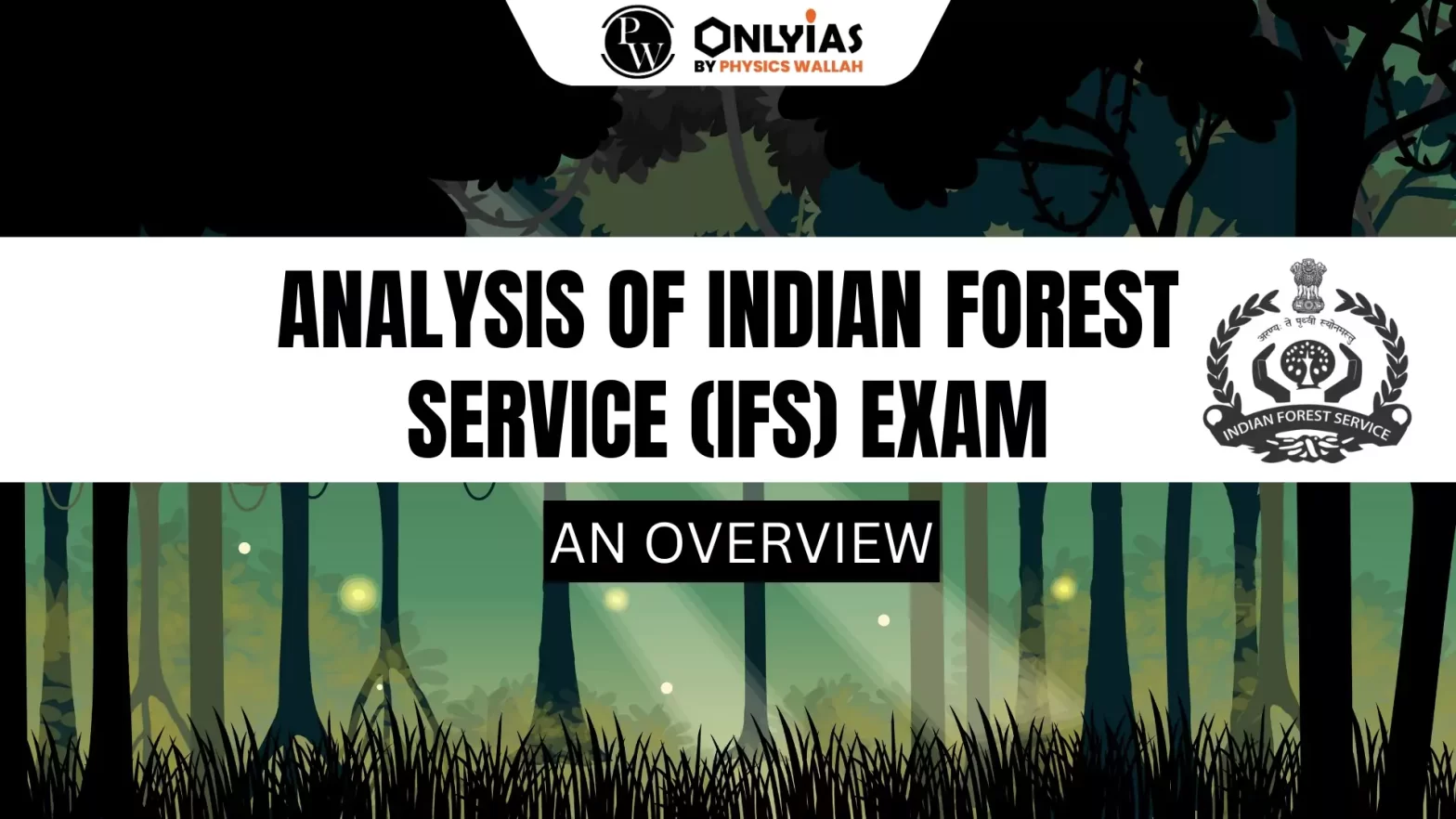Discover the crucial contributions of the Indian Forest Service (IFS) in preserving biodiversity, addressing climate change, and fostering sustainable forestry. Exploring the stages of the IFS examination and the officers' roles in environmental protection, wildlife conservation, and community engagement, shaping a greener, sustainable future.

The Indian Forest Service Exam is conducted in three rounds. A candidate has to clear one stage to qualify for the subsequent stage. The syllabus for the Indian forest service Exam is almost similar to the UPSC Syllabus.
The historical development of the IFS transcribes a journey from exploitation of forest since colonial-era to exploitation of forests to the modern-day. Which raised the concern and emphasised on the need of sustainable forest management, biodiversity conservation, and community participation. Since then Indian Forest Service continues to play a crucial role in preserving India’s diverse ecosystems and natural resources.
Facts
|
|---|

The IFS Mains Exam plays a crucial role in finding and selecting individuals with the right expertise and knowledge to tackle the complex challenges of the forestry sector. Those who pass the Indian forest service exam become vital contributors to sustainable forest management, biodiversity conservation, and the overall health of the environment.
Let us see broadly how Indian Forest Service (IFS) Mains Exam holds significant importance in the forestry sector for several reasons:
The IFS keep its unique and crucial position in contribution to the nation in several ways. Here are some initiatives in which the IFS service contributes to the nation:
The Indian Forest Service Exam plays an important role in preserving and protecting India’s natural heritage and promoting sustainable forestry. The IFS examination plays a crucial role in selecting individuals with expertise in biodiversity conservation, ecosystem management, and climate change mitigation. IFS officers contribute significantly to environmental protection, wildlife conservation, community engagement, and policy formulation. Their multifaceted role underscores the IFS’s commitment to sustainable practices, making it an essential force in nation-building and global conservation efforts.
| Must Read | |
| NCERT Notes For UPSC | UPSC Daily Current Affairs |
| UPSC Blogs | UPSC Daily Editorials |
| Daily Current Affairs Quiz | Daily Main Answer Writing |
| UPSC Mains Previous Year Papers | UPSC Test Series 2024 |
No they are not the same, the IAS exam is for recruitment into the administrative services, while the Indian forest service exam is specifically for selecting officers for the Indian Forest Service, focusing on forestry and environmental conservation roles.
There are a total of three stages (Prelims, Mains and Interview) of exam candidates has to qualify each stage to clear this exam.
Except for prelims examination all other stages of the exam are different in terms of structure and in terms of marks. Candidates have to prepare separately to qualify both exams.

<div class="new-fform">
</div>